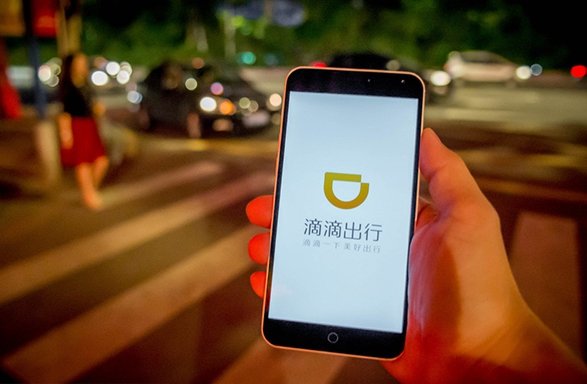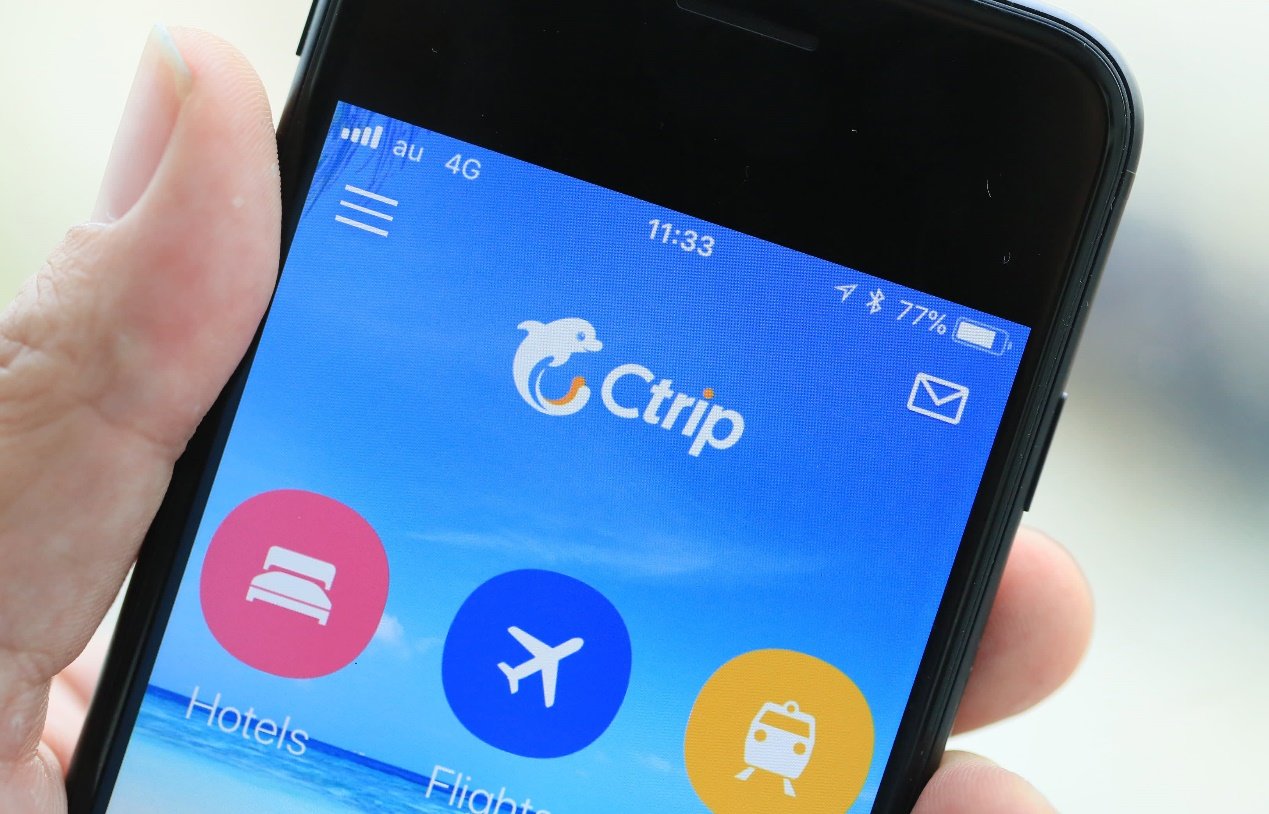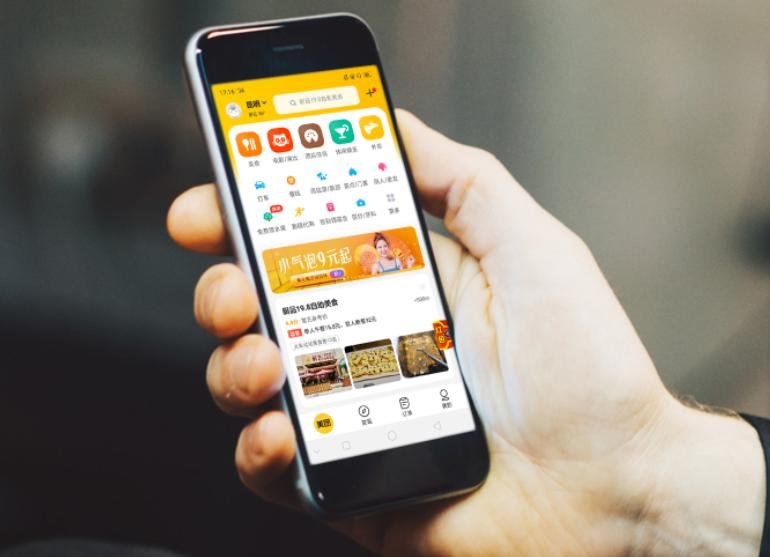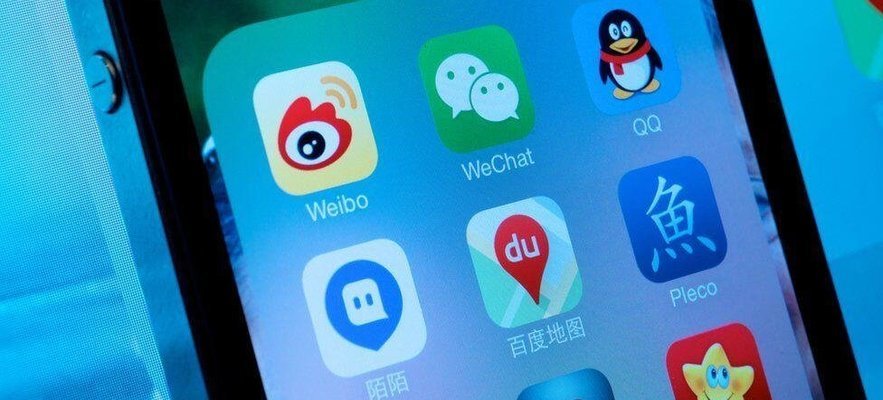There are a lot of smart apps in China that make life a lot easier and relaxing for the busy Chinese that work 996 (from 9am to 9pm 6 days a week). Ordering food via “Waimai” delivery service is the standard lunch/dinner for many Chinese, you can even get it delivered everywhere: to your work, hotel room or the gym. Smart photo editing apps like “Meitu” can now automatically apply your favorite beautifying edits so you look similarly unrecognizable in every picture. And my absolute favorite Chinese app (after WeChat of course, none beats the king of apps) is Taobao, definitely the best shopping app I’ve ever used, not in the least because everything is so cheap. It soothed many of my lonely nights by scrolling through clothes, phone cases, bedlinen, doormats, pet-clothes (yeah, guilty, China really got to me), furniture and basically anything you can imagine and far beyond your wildest imagination.
But no matter how great those apps are for people living in China, they might not be that useful when travelling, since many are only in Chinese and most travelers don’t do much online shopping while on their vacation.
When on the road in China as a visitor, there are still a lot of useful apps that can help you get around. Here's a short overview of a few recommended apps you should consider downloading to your phone, enhancing and facilitating your travel experiences in Middle Kingdom.
WeChat (Free, Online)


WeChat is the most popular messaging service in China, comparable with WhatsApp in other countries, but with even more convenient functions. As emails mostly stay unanswered nowadays in China, Wechat (or Weixin / 微信 in Chinese) is recommended if you want to meet people in China and want to stay in touch. For instance, if you had a good experience with a driver or tour guide and want to keep his contact in case you need him to drive you around on another day, WeChat is the best and most common way to communicate. You can add others by their phone number or account name. You can send text and voice messages and (video) call people for free if you're both connected to the internet. It has useful location functions and a built-in translation of messages when you long-press a message (not always too accurate though, but for a basic understanding often sufficient). You can save files/photo’s/messages etc. in your WeChat cloud space as favorites and follow what your friends are up to under Discover > Moments, not too different from Facebook feeds. You can download WeChat for your computer too and sync with your phone. With WeChat Wallet you can now literally pay everywhere, and you can also pay your phone bills, movie tickets, order a taxi or “Didi” (like Uber) and get food delivered to your door. You do need to add a (Chinese) bank card and verify your ID with your passport photo and number to be able to use WeChat Pay. I do also advise to check WeChat settings before using it, because otherwise WeChat will save every post and picture or video sent in chats and it’ll use up a lot of your storage space (easily up to 3 GB for me after a few months).
Pleco (Free + Paid, Offline)


Pleco is a Chinese learning and translation program: integrated dictionaries, document reader, flashcard system with full screen handwriting input and live OCR (optical character recognition). If you want to get a better understanding of Chinese language, Pleco is the recommended language-learning app which every Chinese language student uses. It can facilitate many (not all!) language barrier situation (menus in restaurants, any kind of Chinses signs, communication support, etc.). You can either input words using English, Pinyin (the Romanization system of Chinese) or (let someone) draw out characters in order to translate them. For some functions like for example the OCR add-on, flashcard learning system and professional dictionaries you need to pay. These are great add-ons for Chinese language students, but for travelers the free dictionary will be sufficient.
Google Translate (Free, Online + Offline)


Whereas Pleco is more a study tool to understand Chinese language or look up the meaning of separate words, Google Translate is by far the best for on the road communication with Chinese people or for example your driver and it now works in China without VPN. It is better for translating sentences than Pleco (Pleco only shows example sentences for each word) and has great voice-translation functions, including a superb conversation translation where you can easily have a spoken conversation via the app while taking turns speaking in the phone. It also has a camera function where you can translate for example menu’s or signs much like the paid add-on of Pleco. Or access photos on your phone to translate text, which might be useful with screenshots of another Chinese app. You can download files for offline translations and instant offline translation via camera.
Maps (Free, Online + Offline)


Maps are a bit tricky in China for foreigners. I myself use and also recommend Baidu Maps, which is – arguably together with Amaps, also called Autonavi Maps – considered the most accurate map in China (Baidu is the Chinese Google). But the downside is that both apps don’t recognize English and the maps are only in Chinese Characters.
Google Maps is the next best option, but unfortunately it is not accessible in China without VPN to bypass the block. But its maps are detailed with good public transport and route calculations in major places all in English/pinyin. In smaller towns or remote areas, it does an ok routing (driving time might be less accurate compared with Baidu Maps), but public transport details might be missing.
MAPS.ME offers offline maps and I tried it out, but wasn’t too convinced for its use in Yunnan. It still seems to be the most recommended English non-VPN map in China. For the most common sights and hotels it might be alright, but for districts outside the city center of Kunming for example, it was incomplete. For places like Lijiang and Dali Old Town it had some maps, but outside of the old towns it was again not as good as I’d hoped. But for travelers it might be just enough in case Baidu and Google Maps aren’t an option.
NetEase Music (Free + Paid, Online/Offline)


For music lovers China is great, because there is less of a fuss about offering free music services than in western countries. Whether you want to listen to Lady Gaga, your favorite 80s rock band or get out of your comfort zone and listen to the latest C-pop or discover Yunnan folk reggae (yes, that’s a thing and I can recommend it) while on the train, NetEase (Wangyiyun yinyue / 网易云音乐) probably has it; for free, and without advertisements. Really, it surprised me multiple times that they had a specific non famous artist or band and even many non-English artists. The app is now also offered in English and you can conveniently login with your WeChat account so you don’t need to remember yet another username and password combination. Many songs can also be downloaded for free, but others need a VIP membership to be downloaded. Recently some songs/albums have become VIP only for listening online too. But a VIP membership costs maybe around ¥10-15/month which is about $2. But actually, I haven’t personally encountered many member-only songs in my favorites list. The only downside is that many songs on NetEase are not copyrighted outside of China, so after you leave China it’s rather useless.
 iQIYI streaming (Free + Paid, Online)
iQIYI streaming (Free + Paid, Online)

If you like watching movies or series and you’d like to immerse yourself into modern Chinese culture, check out iQIYI (aiqiyi, 爱奇艺), a free streaming site with both Chinese and foreign movies and TV series. Many recent Chinese movies now have English subtitles too, and you might have to get used to the Chinese humor, cheesy love stories or mythical fantasy Kung-Fu style in the beginning, but I got to love it and I am sure others will too. The app is only in Chinese, but with trying out a bit and some random clicking, you should be able to figure it out. There are enough movies offered for free, but even more movies are for VIP and a membership also costs around ¥15 per month. There’s a lot more apps like this out there, like Youku (Chinese YouTube), Tencent Videos, PPTV and probably a lot more and they all offer a different selection of movies for free. Use WeChat to login.
Didi Chuxing (Free, Online)

Incredibly popular nowadays is to get a “Didi” if you need to go somewhere. The Didi app is similar to Uber and might be easier, cheaper and more comfortable than taking a regular taxi. Especially for foreigners in big cities, getting a taxi might be hard, as drivers often make a detour to earn a few bucks more or they don’t stop at all to avoid the hassle to deal with foreigners that don’t speak Chinese. In Kunming I haven’t encountered this problem much, though when I just moved to Kunming, I thought taxi drivers ignored me because I was a foreigner only to find out later that between 5 and 7 pm when they switch shifts, they often don’t stop for anyone. When it’s raining, they also have a tendency not to stop. But nowadays you can just call a Didi, and you can choose between an express car, premier car, normal taxi or a high-end luxury service. Shared rides have been disabled after a few incidents (but hey, in a country with over a billion people I think a handful of incidents is statistically very low and I never felt unsafe using a Didi). For short distances like to Kunming Railway Station for example, there is not much price difference with regular taxis, but for longer trips, for example to Kunming Airport, it is significantly cheaper. The app is now completely in English and added a lot of safety measures, and as with most apps in China, you can use your WeChat account to log in. You can use WeChat Pay, Alipay and international credit cards to pay.
Ctrip/Trip (Free, Online,)


Ctrip is one of the two biggest travel apps in China, the other one being Qunar. I use Qunar, but it doesn’t have an English version, whereas Ctrip does, simply called Trip and it is international. You can login with WeChat and you can also use Facebook and Google when you’re outside of China. You can easily book flights and train tickets, hotels, restaurants and car rentals (though you cannot drive in China without a Chinese driver’s license, an international driver’s license is not valid). You can also book tours on it, though the prices are relatively high. Not just saying that to sell our own tours, but they are actually more expensive;)
Meituan (Free, Online)

The main order, book and review site in China for, well, almost everything is Meituan. It is perfect for finding out which restaurants nearby have good ratings from other customers or for ordering “waimai” food delivery service. The app is only in Chinese, but icons make easy to use (and don’t forget the photo translate function in google translate). You just click on the “food” icon and it’ll show you restaurants nearby with prices, opening times, address and reviews often with pictures. You can show the address to a taxi driver and he’ll bring you there. And it’s not just for restaurants, but also for bars, cinema’s, hotels, kids’ playgrounds, attractions, hospitals, dentists, shopping malls, massage, hairdressers, manicure, yoga classes and KTV’s (karaoke clubs). Basically, any type of business or service you can imagine is on Meituan. If you want to use it for booking or ordering things, you need a Chinese way for online payment such as WeChat Pay or AliPay.
Want to keep up with current travel information in Yunnan and China? Check out our latest newsletter and if of further interest, you can subscribe to it in the field at the lower right end of this page - just enter your email address. Any other questions (and if you shouldn't have a phone to download the above apps) feel free to contact us anytime. Also - better than any "smart" phone - one of our tour guides will be happy to join you during your Yunnan Tour!
- 446 reads
- Like this







